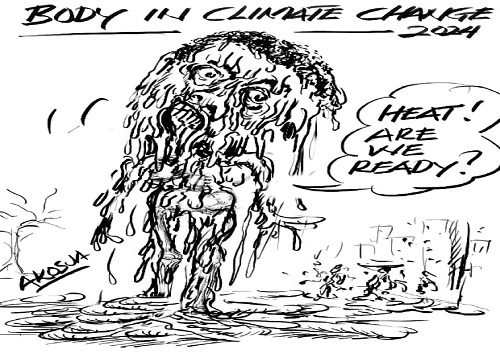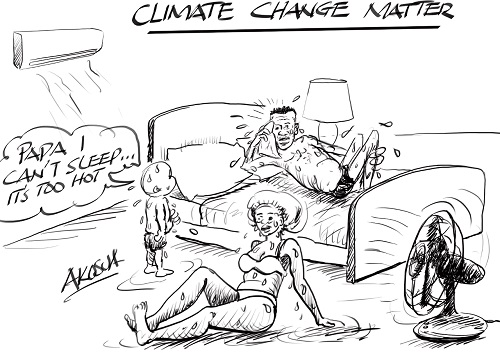
The West African Science Service Centre on Climate Change and Adapted Land Use (WASCAL) on Wednesday gave an update on its major achievements in reducing the negative impacts of climate change in West Africa.
It sought to also create a platform for advancing discussions on the contribution of climate and environmental services.
The WASCAL is a large-scale research-focused climate service centre designed to help tackle climate challenge and thereby enhance the resilience of human and environmental systems to climate change and increased variability.
Funded by the German Federal Ministry of Education and Research (BMBF), the centre provides research institutions, universities, NGOs, government agencies and enterprises from across West Africa with an opportunity to display and present their works in the field of climate change and environmental issues.
Professor Rene Haak, a representative of the Federal Ministry of Education and Research, Germany, said the centre had the capacity to pursue science-based solutions to climate-related challenges in the sub-region.
He emphasised the importance of strengthening the science research base in Africa, acknowledging the efforts of WASCAL in coordinating several of these studies.
He said, so far WASCAL had trained a lot of first class climate change research scientist, and was hopeful the number would be increased soon.
Prof. Haak said the centre ensures training was translated into key outcomes that would address the concerns of society.
"Consequently, its previous and current activities had centred on an unrivalled instrumentation to close the data gaps in climate change research in West Africa, training the next generation of climate scientists through an ambitious capacity building programme," Prof. Haak said.
He acknowledged effective partnerships as the only way to sustainably combat climate change and improve livelihoods, and thanked all WASCAL partners and donors for the good collaboration and support.
Dr Moumini Savadogo, Executive Director of WASCAL, said, the centre had been pursuing the implementation of cutting edge research on various aspects of climate change research since its establishment eight years ago, and had made some modest achievements which included the improvement in the quality and quantity of critical data required for climate change research.
Dr Savadogo said in terms of capacity building, WASCAL doctoral and master programmes had been implemented in 10 lead universities across nine West African countries, and would soon be increased to 12 in 11 countries, with 10 topics related to climate change.
In addition, WASCAL has purchased and installed automatic weather stations across all its 10 member-countries in collaboration with the national meteorological agencies, with the aim of closing the climate change data gaps in the sub-region, while strengthening these agencies, he said.
Read Full Story






















Facebook
Twitter
Pinterest
Instagram
Google+
YouTube
LinkedIn
RSS